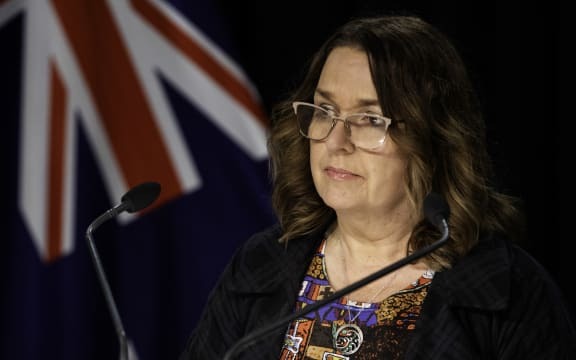Pay parity for ECE teachers 'further out of reach' after cost blowout
RNZ
21 November 2023, 5:56 PM
 The government set aside $428m over four years for the flow-on cost of teachers' pay settlements to early learning services. But it was not enough. Photo: RNZ / Marika Khabazi
The government set aside $428m over four years for the flow-on cost of teachers' pay settlements to early learning services. But it was not enough. Photo: RNZ / Marika KhabaziJohn Gerritsen, Reporter
The government underestimated the cost of passing on school and kindergarten teachers' pay rises to early childhood teachers by $253 million.
A September Cabinet paper from Education Minister Jan Tinetti showed the government set aside $428m over four years for the flow-on cost of teachers' pay settlements to early learning services. But it was not enough.
"The final settlements of the kindergarten, primary and secondary teacher collectives, and the change to offer funding rate parity for some education and care services with kindergartens, increases the cost of passing on salary improvements to education and care services," the paper said.
"This is $253 million above the funding set aside in the bargaining contingency to pass on the increases to the unified base salary scale (UBSS) from all three teacher collectives. Vote Education has no further capacity to absorb this additional cost.
"The pass-on of the full range of salary increases may be considered in future. It is not currently affordable for the government to continue to commit to pay parity and pass on the full settlement to education and care services."
The paper said the Ministry of Education realised in June when it was updating kindergarten funding rates in light of its teachers' pay settlement there was a "mismatch" between the amount of money set aside for extending those rates to some early learning services and the likely actual cost.

Jan Tinetti. Photo: RNZ / Angus Dreaver
It had initially estimated the figure based on the pay gap between early childhood and kindergarten teachers and the number of teachers, but later calculated the cost of applying kindergarten subsidy rates to early childhood services that opted into pay parity.
"I have expressed my disappointment to officials for not identifying the problem sooner that has resulted in this funding shortfall," Tinetti's paper said.
"The ministry is improving its processes for managing the cost implications of new policy initiatives and calculating bargaining contingencies. I have received assurance from the ministry that I will be advised of risks such as these sooner in future.
"However, the error has further highlighted the complexities of the funding model for the ECE sector and the need to review the system so we can have better costing, modelling and accountability of public funds."
Cabinet later agreed to pass onto early childhood centres the subsidy increases that kindergartens would receive up to and including December this year, but not subsequent increases.
'Really angry and very frustrated'
Early childhood teachers already knew the government could not afford pay parity, but Educational Institute national secretary Stephanie Mills said its members would not be happy to learn about the ministry's miscalculation.
"Early childhood teachers are going to be really angry and very frustrated because they've fought for pay parity to be recognised as professionals for decades, we've finally got there it seemed and now it's been undercut, not just by I guess accounting problems at the ministry but because education is still seen by government as something that is a cost - not an investment."
Mills said the ongoing mismatch between kindergarten and early childhood funding rates was bad news for early childhood teachers and also for families.
"We've already got a sector that is in crisis because we've got too few qualified teachers in the workforce, we've got a high churn because pay and conditions are pretty terrible and so I think what we are going to see is real impacts on teachers, but also on the families and the children that they serve.
We'll see teachers leaving for Australia, we'll see teachers leaving the sector go to into primary teaching for example, we might I think also see increases in costs to families because one of the perverse consequences of this is that if services don't get funded enough to pay for parity and they need to keep their teachers they will have to pass those costs on to parents."
Mills said the incoming government should put the problem at the top of its priority list because it affected 25,000 teachers and hundreds of thousands of families.
She said early childhood funding needed a "transformative review" because funding rates were based on average teacher costs which penalised those services with long-serving, more expensive teachers.
Mills said the Early Childhood Education Agreement covering teachers working at about 100 mostly community-based services was still under negotiation.

Simon Laube. Photo: supplied
Early Childhood Council chief executive Simon Laube said the paper showed how stretched the government's finances were.
"They had a secret allowance that no one knew at the time for the collective, but actually once the secondary teachers settled they just simply did not have enough money to flow on that outcome to 18,000 teachers in education and care services, by a huge amount."
Laube said funding for early learning was complicated and the paper showed the outgoing government had taken pay parity off the table until the system was reviewed.
"The line seems to be pay parity's off the table for education and care but we would like to do a funding review because of all these concerns," he said.
"Pay parity's just gone further out of reach."
This story was originally published by RNZ



